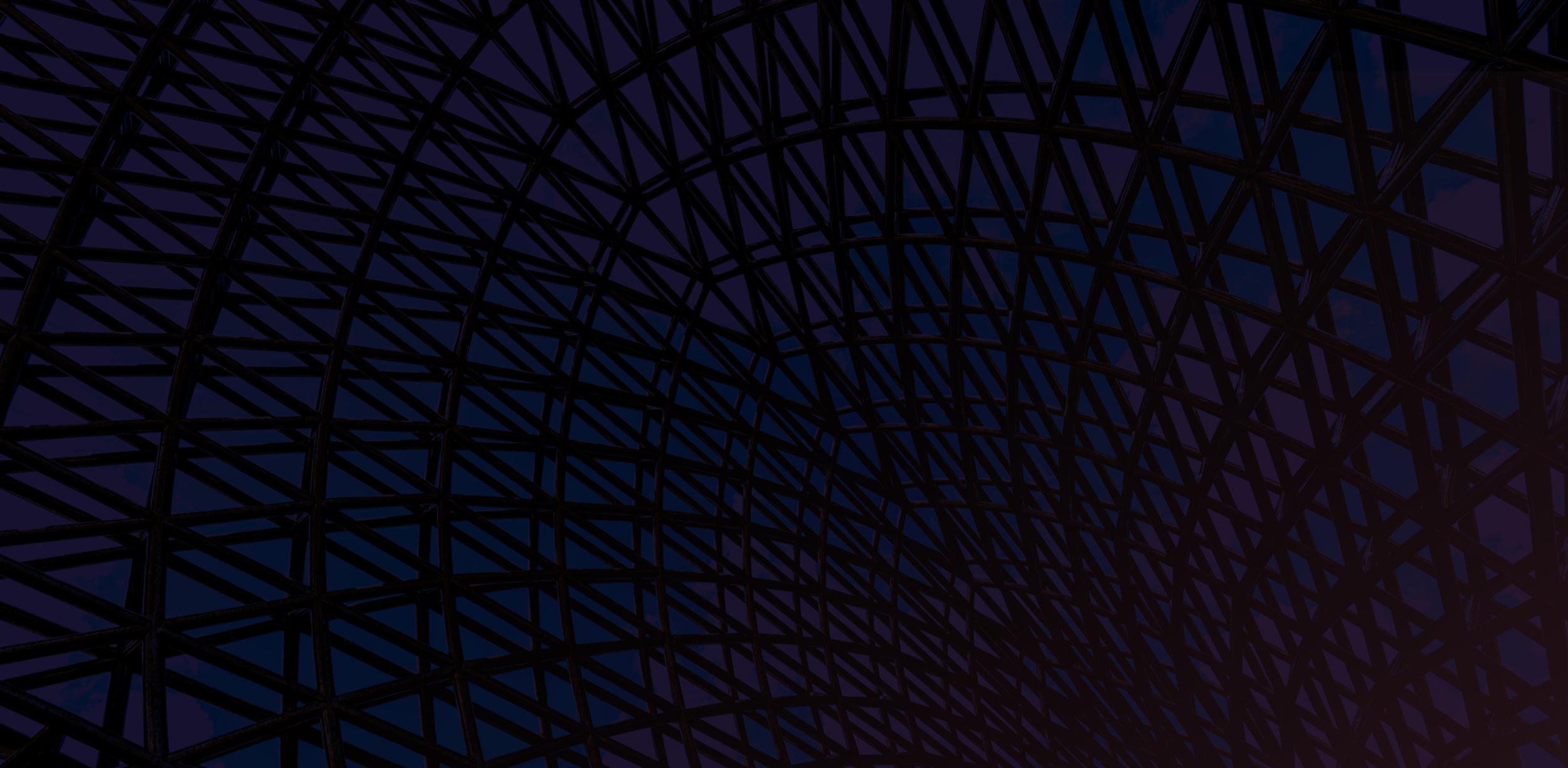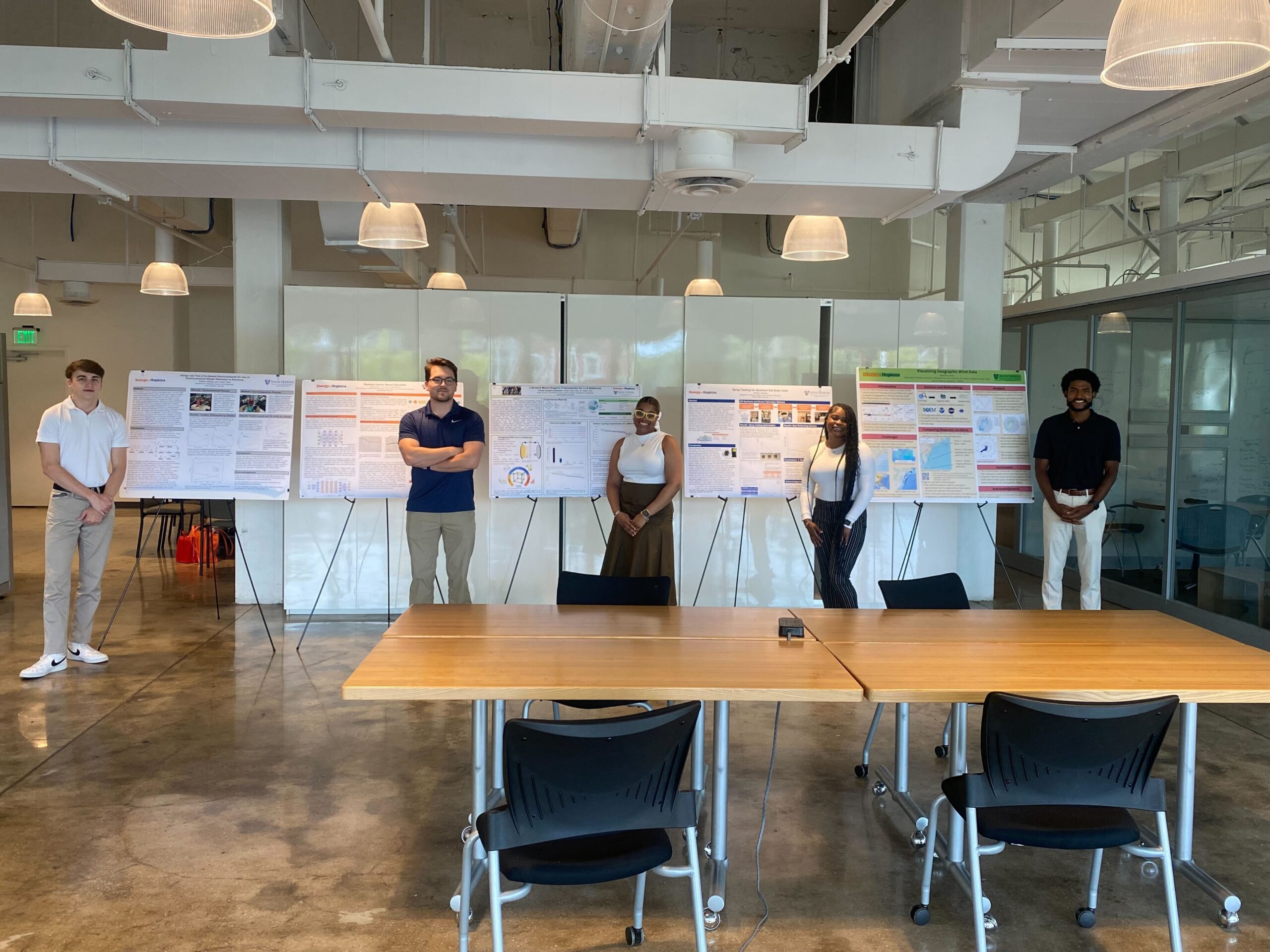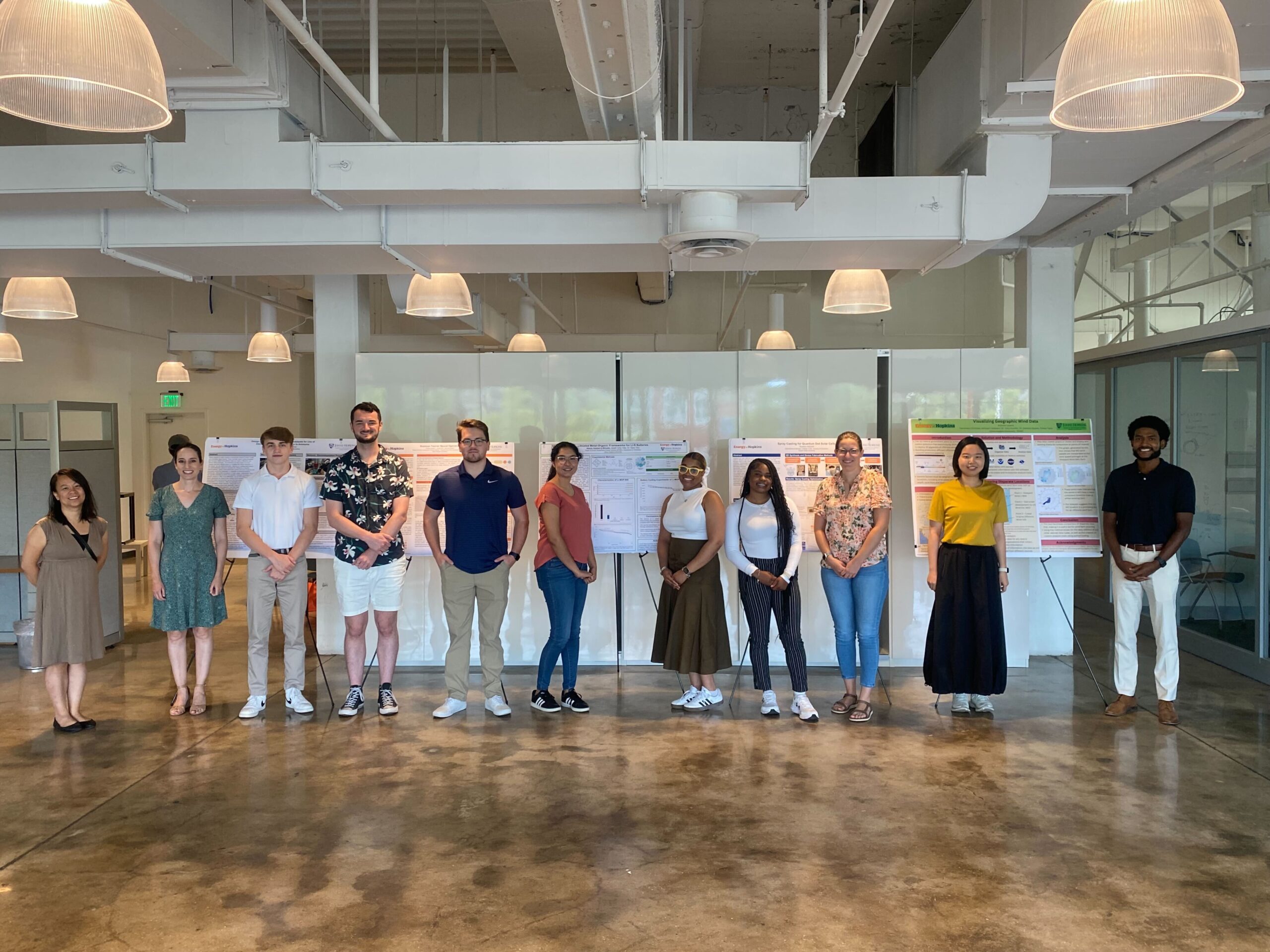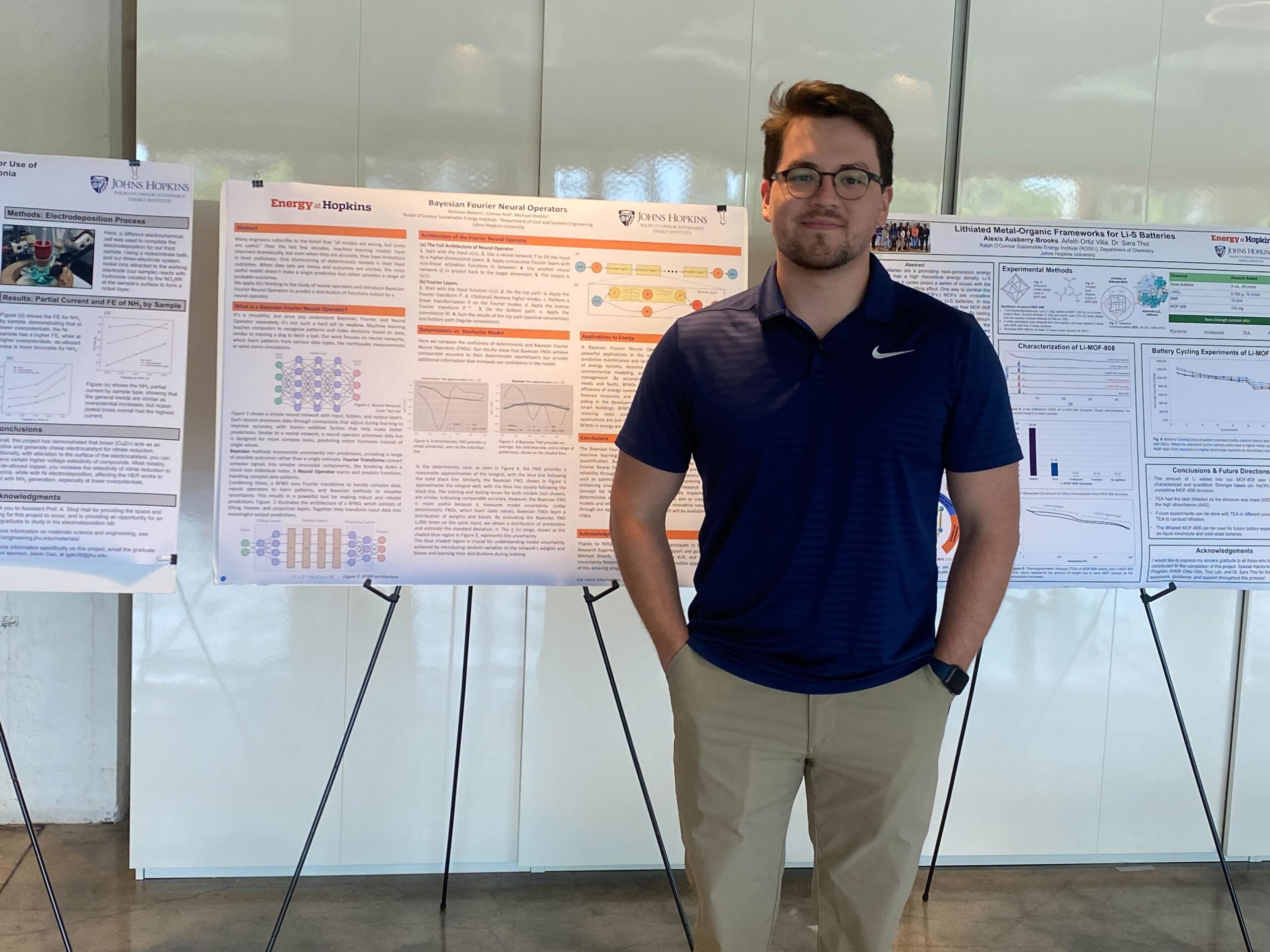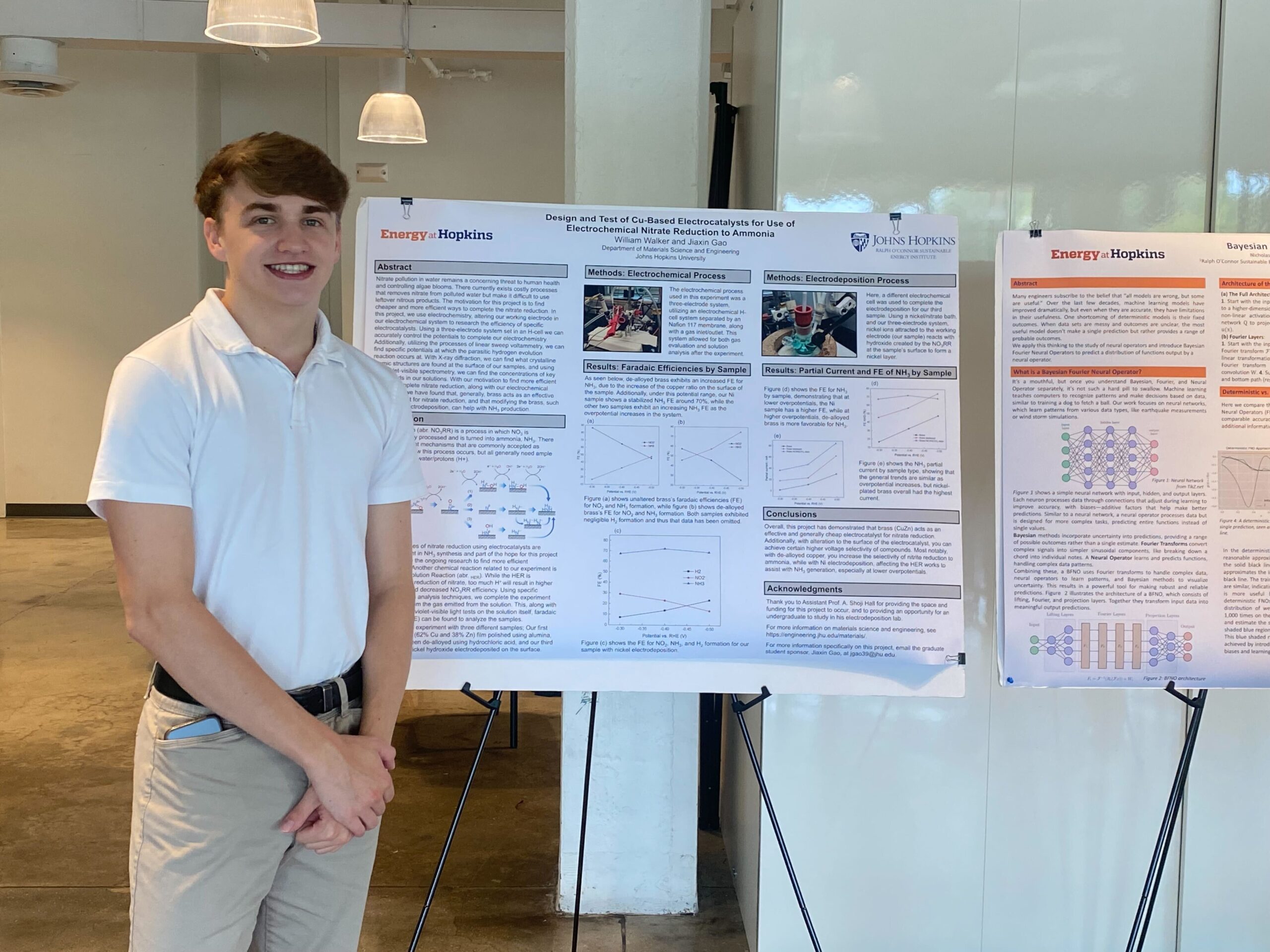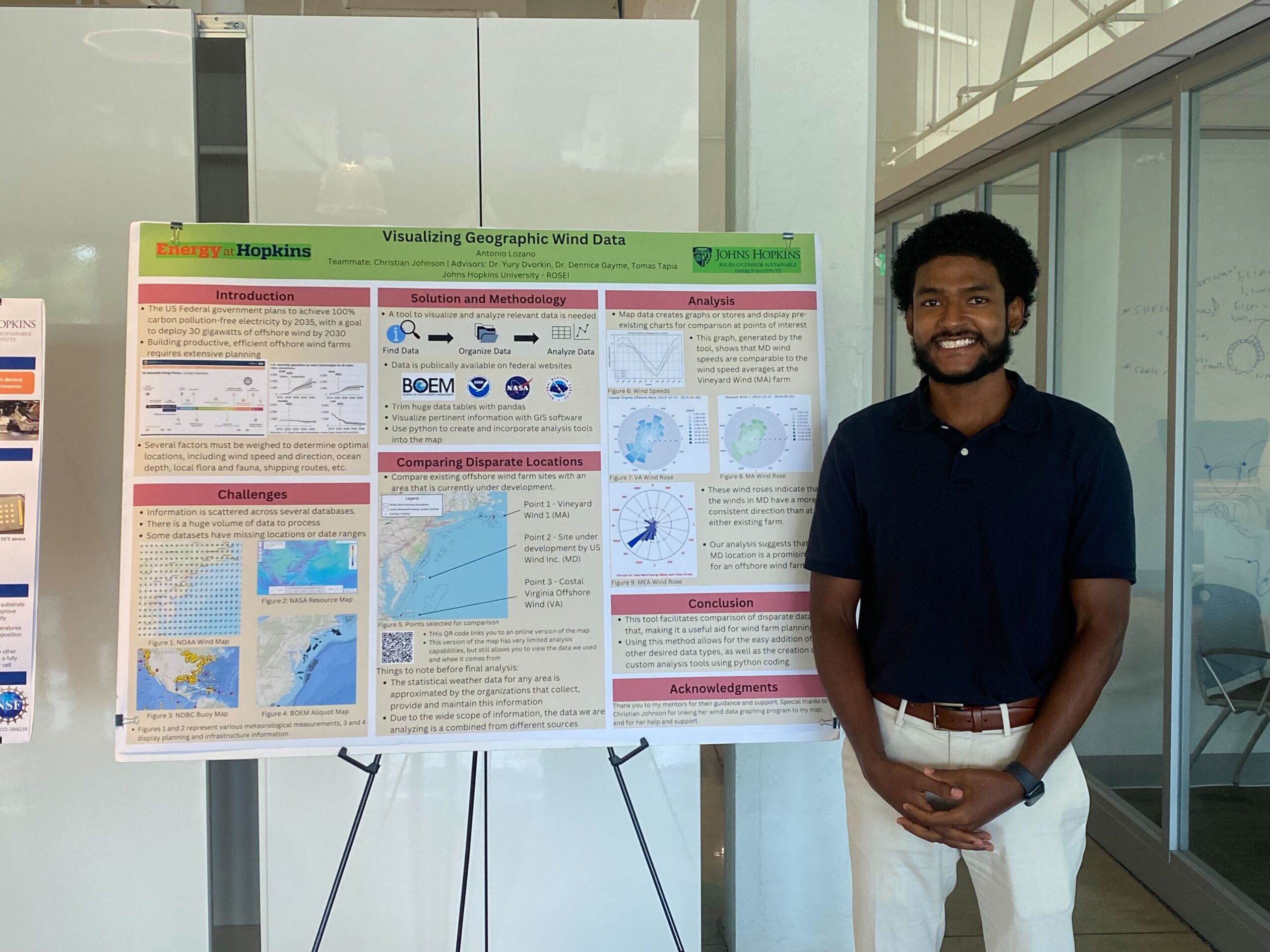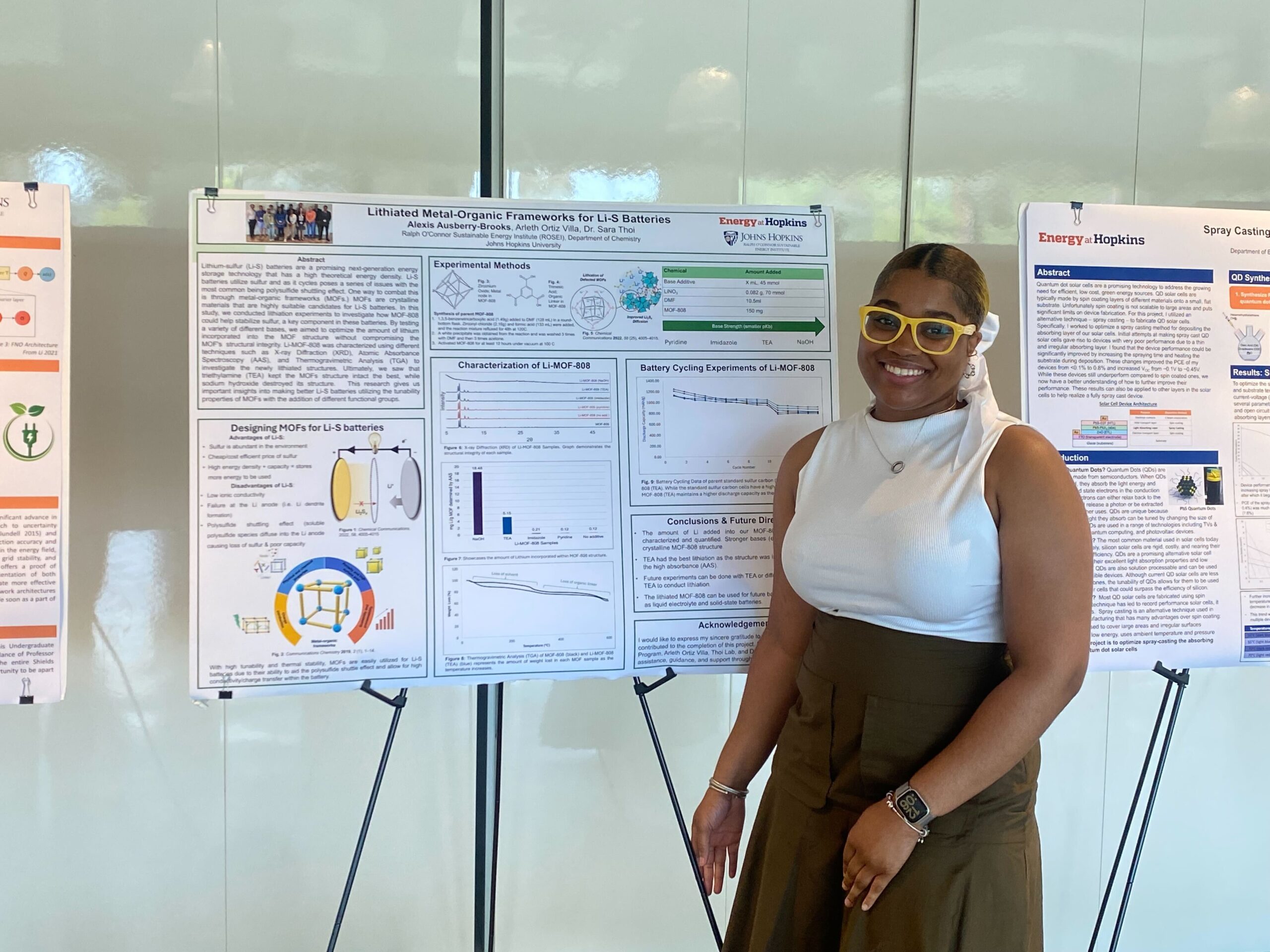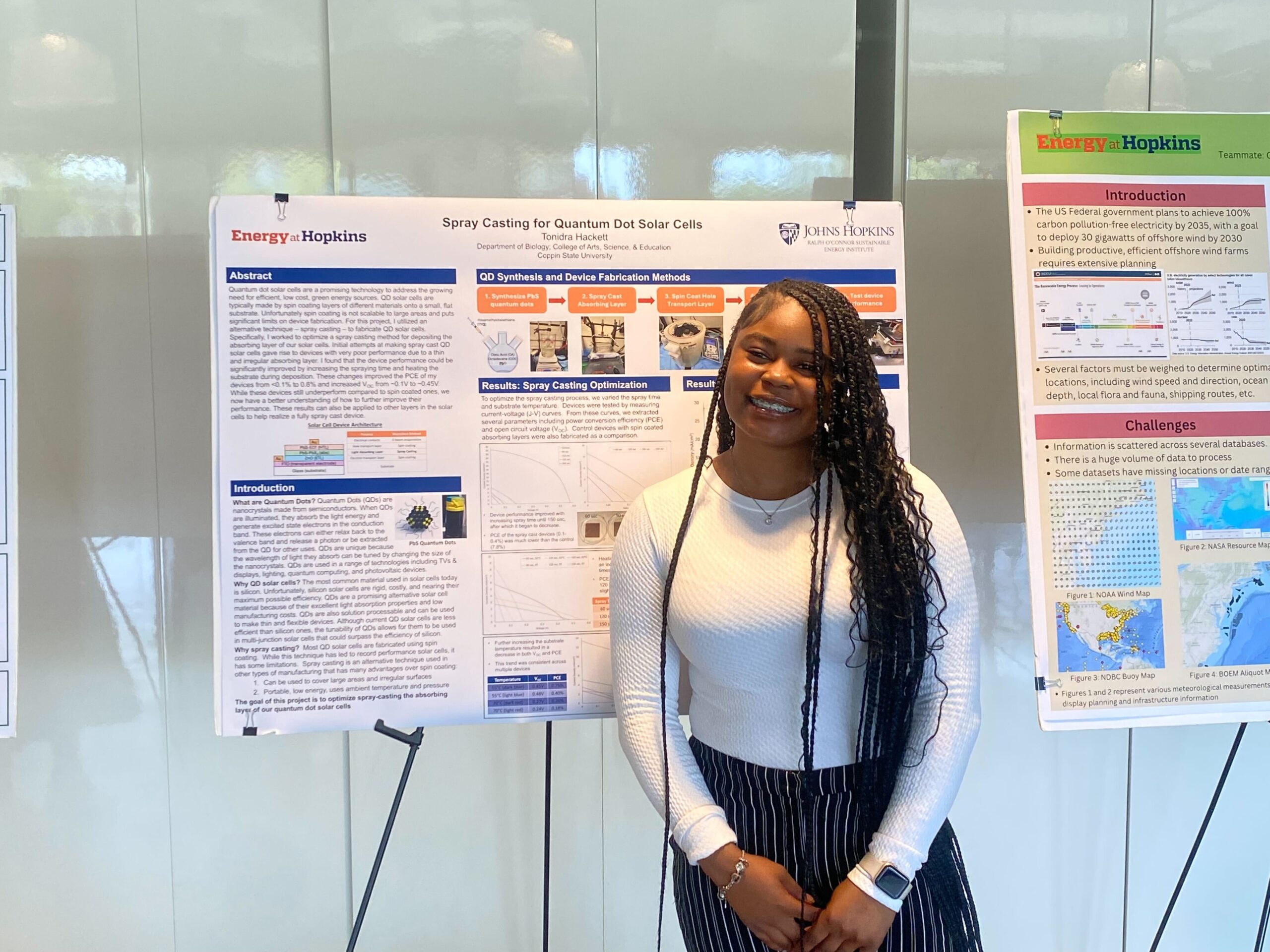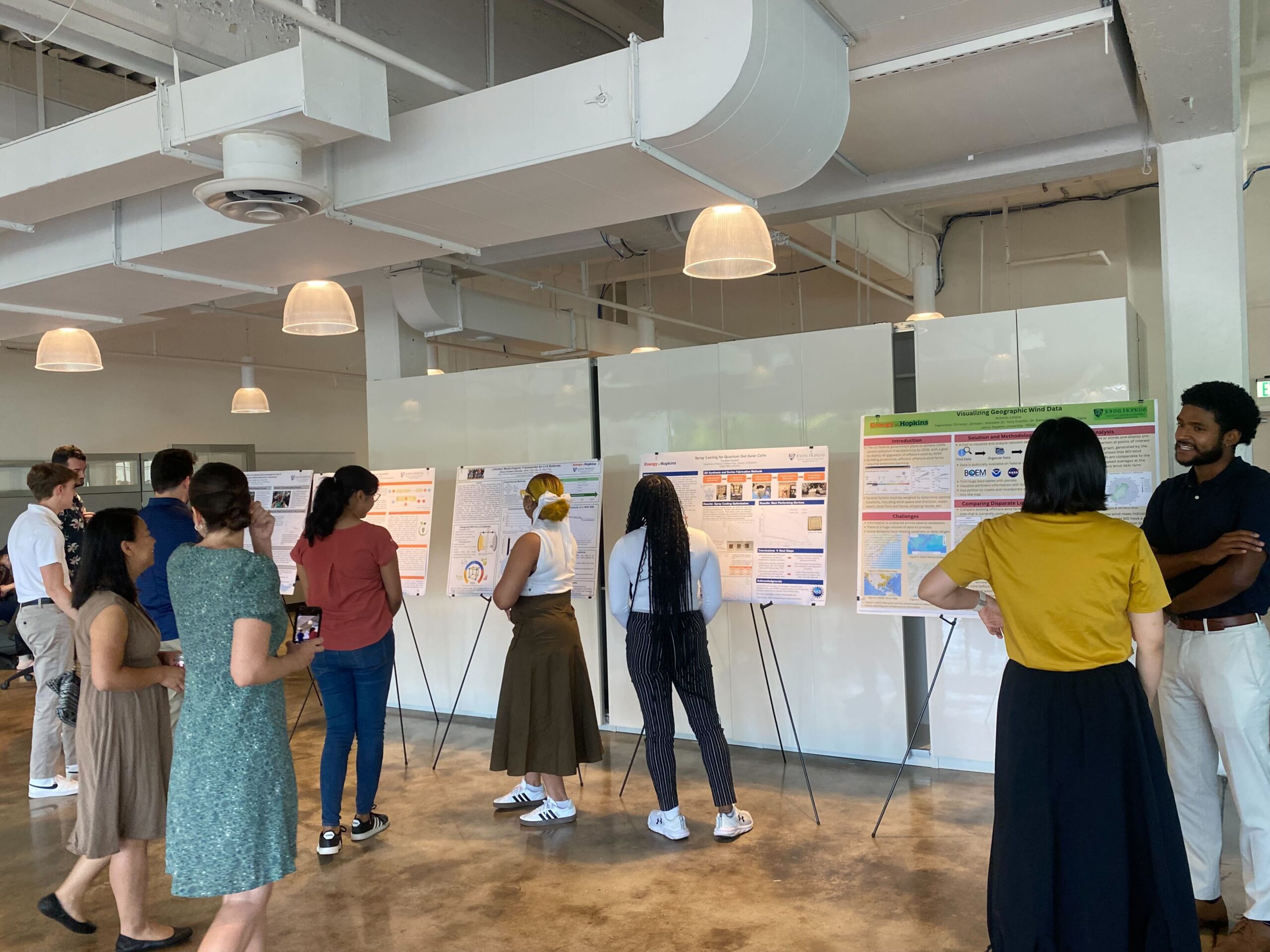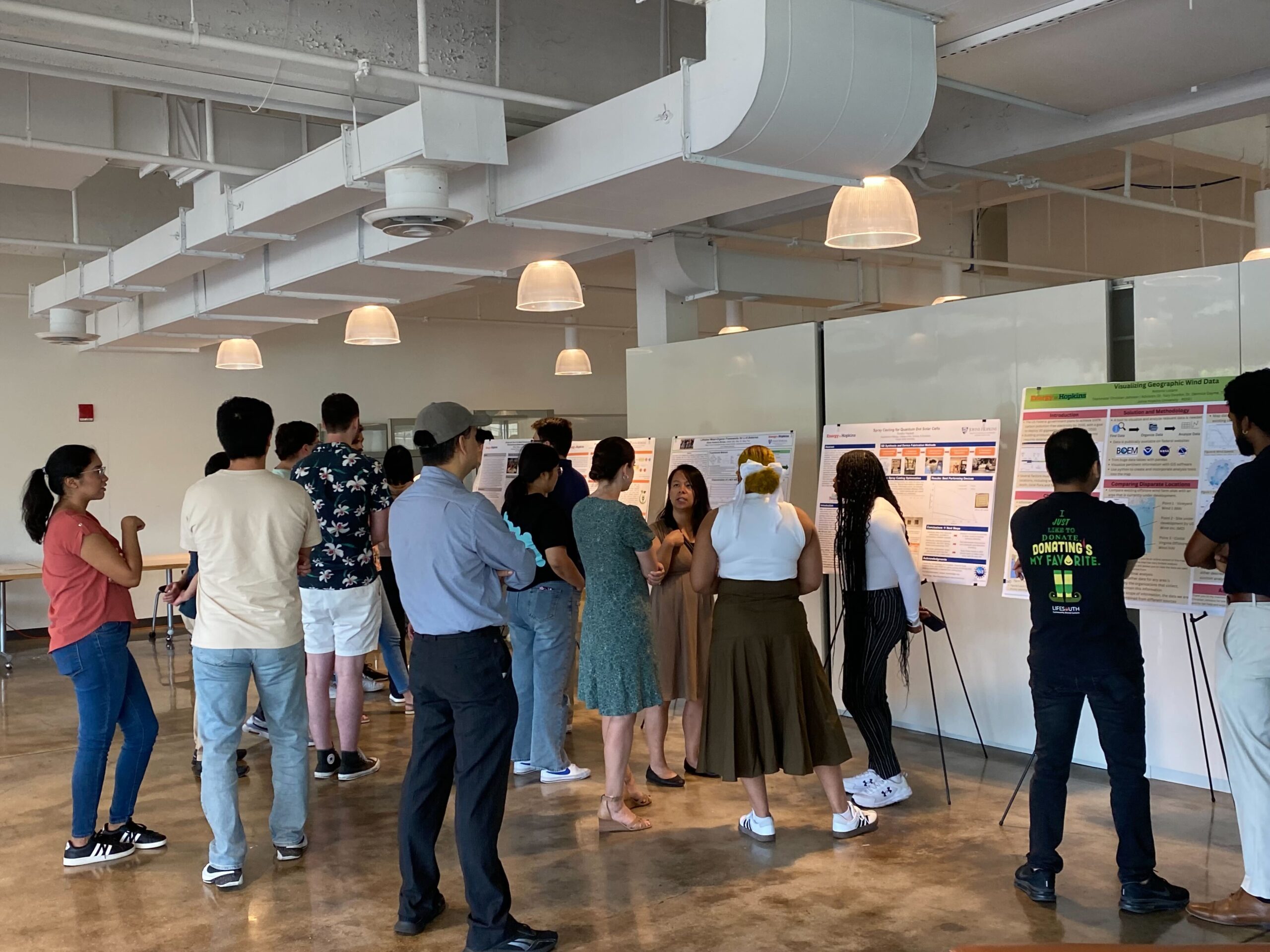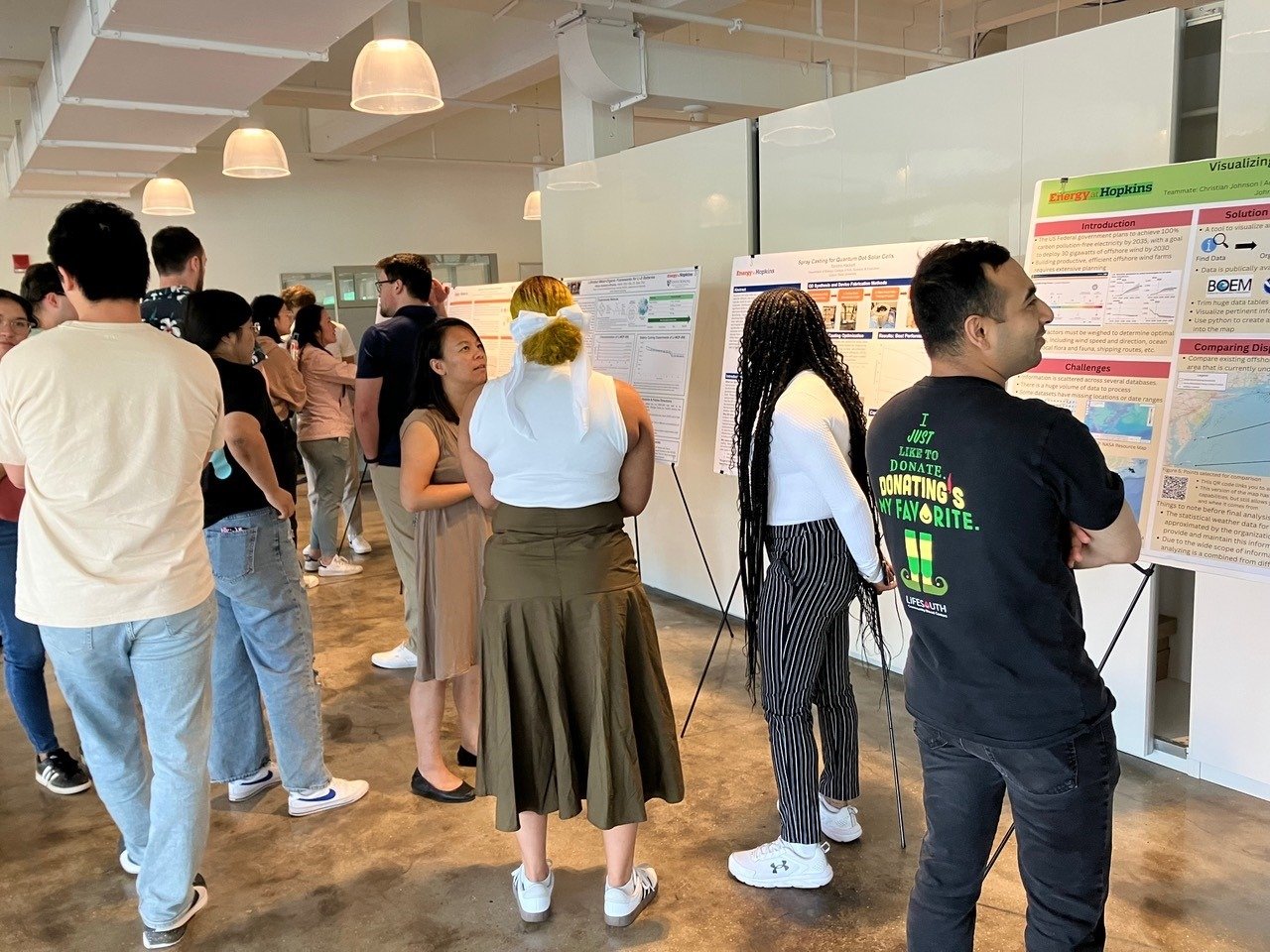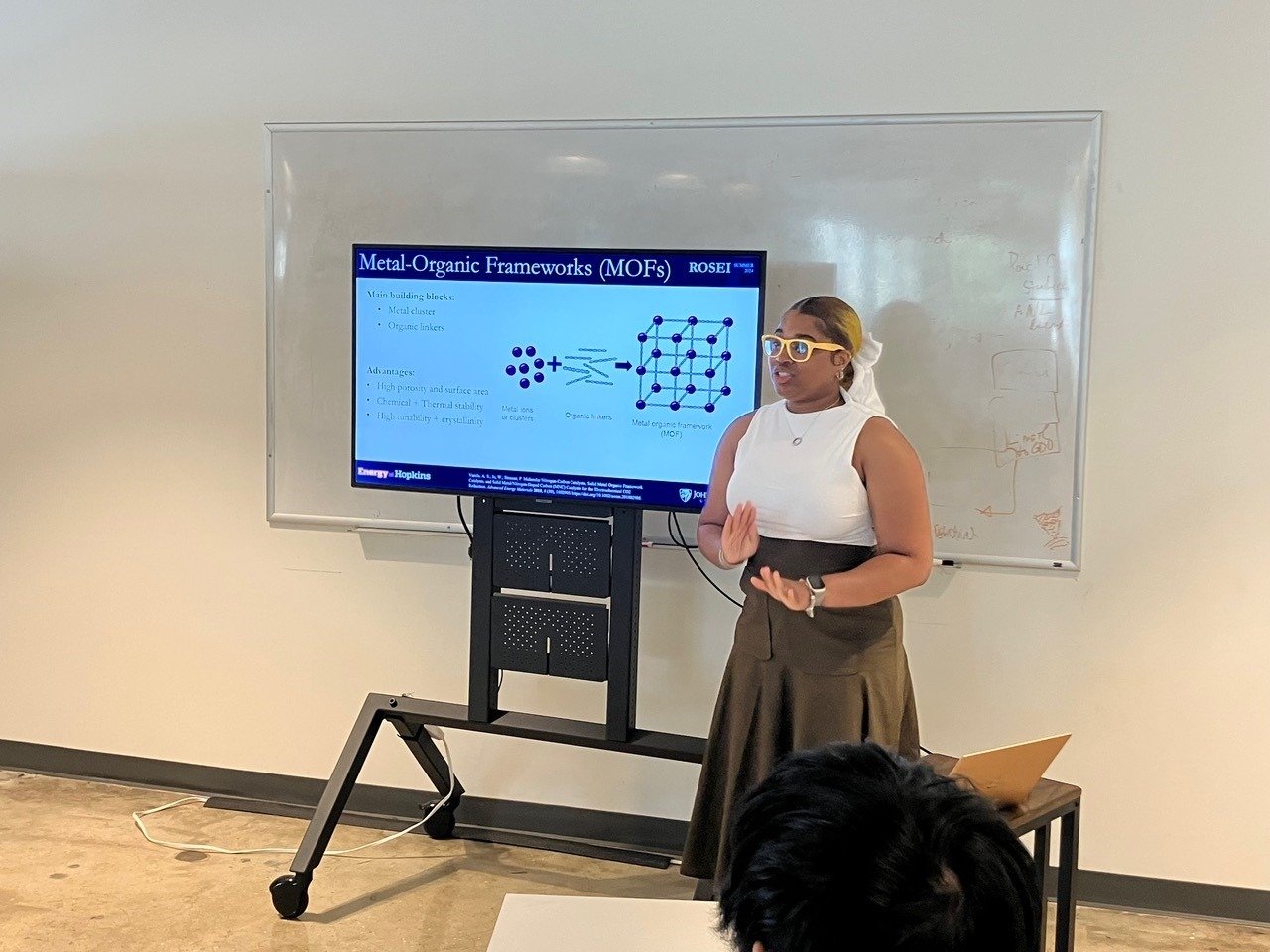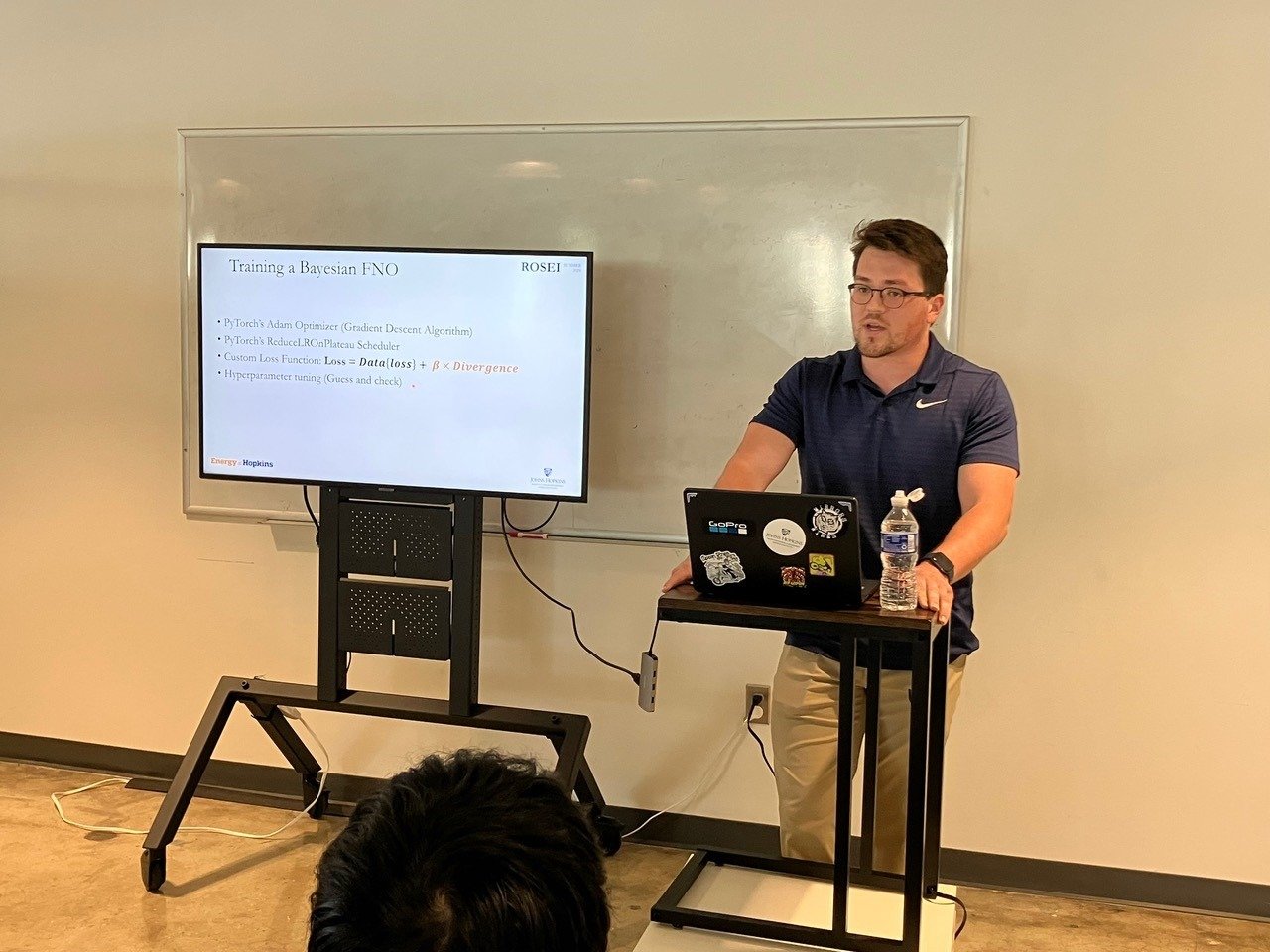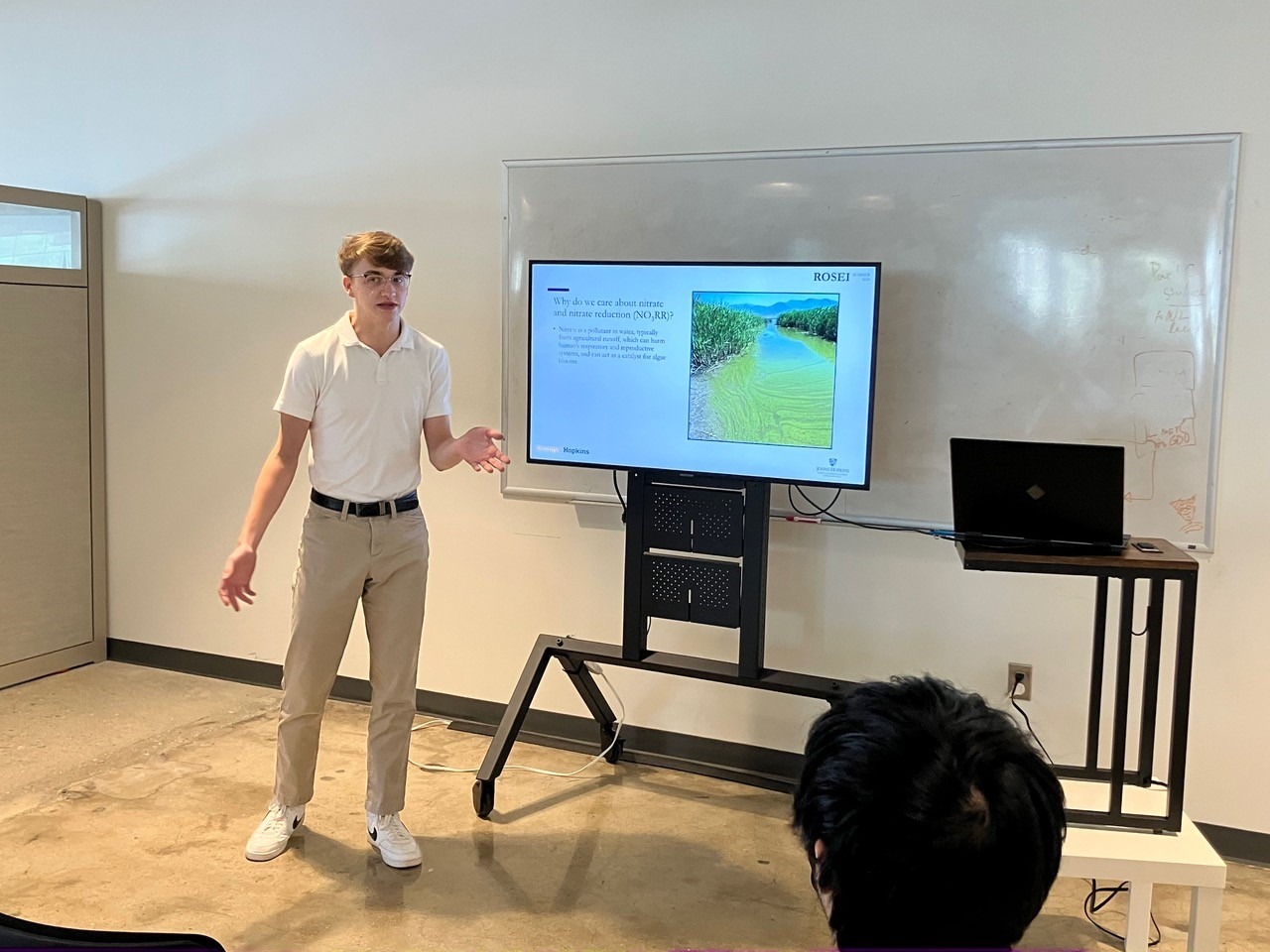The first year of the Ralph O’Connor Sustainable Energy Institute‘s (ROSEI) Research Experience Summer Program ended with excellent poster and oral presentations from the five participating students. The symposium, which was hosted at ROSEI’s R. House offices on July 26, brought together the program’s students from local community colleges and HBCU’s to present the research that they had been working on for the previous eight weeks in ROSEI faculty’s labs.
“It was a great final experience for the students. The event was well-attended, and the crowd was very engaged,” said Susanna Thon, an associate professor of electrical and computer engineering who is a ROSEI core faculty member and oversaw the first year of the program. “I’d like to thank the labs of the ROSEI faculty – Sara Thoi, Yury Dvorkin, Shoji Hall and Michael Shields – for providing excellent environments for the program’s students. The goal of the program is to expose students to research in energy and offer them opportunities for growth in their studies and professional experience, and when watching those final talks, you could see how much that has happened.”
Titles of the presentations included:
- Bayesian Fourier Neural Operators
- Design and Test of Cu-Based Electrocatalysts for Use of Electrochemical Nitrate Reduction to Ammonia
- Lithiated Metal-Organic Frameworks for Li-S Batteries
- Spray Casting for Quantum Dot Solar Cells
- Visualizing Geographic Wind Data
Having a program focused on giving non-Hopkins undergraduate students more experience in sustainable energy labs has been a goal of ROSEI’s since the institute’s inception. The Sustainable Energy Education (SEE) Program for high school students – which is in its third year of existence – has become a staple of what ROSEI does from an education perspective. Thon is optimistic that this program can fulfill a similar need for undergraduates.
“My hope is that this first year is just a start for what becomes a cornerstone of ROSEI’s education efforts,” said Thon, who also had a student from the program work in her lab. “The aim is for more students and ROSEI labs to become involved next year. It’s a great experience and opportunity for all involved, so hopefully we meet our goals for 2025.”
See below for photos from the symposium:
